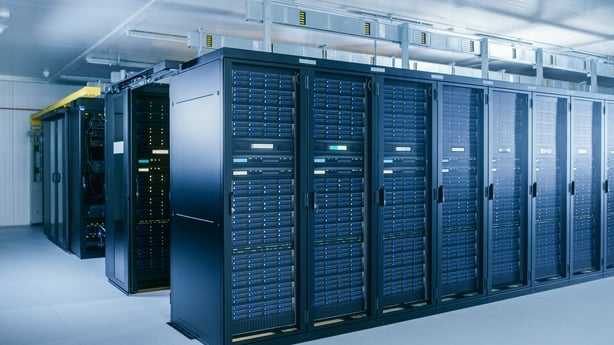Five third parties are now contesting Fingal Co Council's green light for Amazon Web Services's plans to construct three new data centres in north Dublin.
This follows five objectors lodging appeals with An Bord Pleanála against the decision by Fingal Co Council to grant planning permission to AWS firm, Universal Developers LLC, for the three new data centre buildings with a combined power load of 73MW on a 65 acre land-holding at Cruiserath Road, Dublin 15.
In addition to the three granted planning permission, one AWS data centre is already operational at the campus while construction work continues on two others.
The Council granted planning permission despite opposition from Friends of the Earth, Not Here Not Anywhere, Gluaiseacht and others.
Appeals have now been lodged by Friends of the Earth, the Fingal One Future Group, Dr Colin Doyle, John Conway and Louth Environmental Group and Mannix Coyne.
On behalf of Friends of the Earth, its Head of Policy, Jerry MacEvilly has requested An Bord Pleanála to stage an oral hearing.
Mr MacEvilly has told the appeals board that the proposed development will impose significant pressures on electricity sector decarbonisation "and it is at best unclear how the operation of the proposed development over its lifetime will be compatible with the increasingly stringent carbon budgets".
On behalf of the Fingal One Future group, Dr Sarah Zimmermann has told the appeals board that the granting of planning permission for the three data centres represents a triple threat in the context of the Irish energy system.
Dr Zimmermann states that "the three threats relate to energy security, the security of our power system and to our pollution limits".
Dr Zimmermann contends that "data centres currently use a fifth of all energy consumed in Ireland and is it unsustainable that more than half (62pc) of the country's expected increase in electricity demand between 2021 and 2025 is set to come from large energy users such as data centres".
In his appeal, Dr Colin Doyle of Station Rd, Ennis claims that the grant of permission effectively amounts to an ad hoc allocation of a portion of the remaining limited national carbon budget to the applicant.
Dr Doyle said that the proposed development when connected to the grid would cause an immediate increased power demand of 73MW.
Dr Doyle argues that as renewables cannot instantly adjust to match a new base load, the additional generation will in fact be provided by existing fossil fuel power plants.
In the Conway and Louth Environmental Group appeals, bkc Solicitors argue that the scheme is inconsistent with the proper planning and sustainable development.
However, in granting a seven year planning permission, the Council concluded that the construction of the three data centres would be consistent with European and Government policy concerning the development of digital infrastructure.
The Council concluded that the project would not, in itself or taken cumulatively with other developments have a detrimental direct or indirect impact on the environment.
The planning authority included a condition that prior to the operation of the data centres, AWS must have in place a Corporate Purchase Power Agreement (CPPA) which demonstrates that the energy consumed by the data centres is matched by new AWS renewable energy generation here.
The Council stated that the new renewable energy projects shall be located in Ireland and the amount of electricity generated by the renewable energy projects shall be equal to or greater than the electricity requirements of the data centres in operation at any given time.
Planning consultant for the AWS firm, John Spain told the council that "the proposed development does not entail a new request for power because it has an existing connection agreement" and will be supplied power by an existing transmission system.
Mr Spain stated that the existing connection agreement provides for eight incremental increases in power supply to the site, commencing in 2022 and completing in 2029.
A statement from AWS said the proposed development represents a significant investment that will create additional direct, indirect and induced economic and employment benefits, in addition to those that have already been generated by the company.

"As such, it is fully consistent with the Government's preference, as set out in the Government Statement on the Role of Data Centres, for data centres to be associated with strong economic activity and employment," the company added.
In its statement, AWS said its renewable strategy and climate focus is evident in its ongoing investment in Irish infrastructure.
It noted that it has already announced three onshore wind projects here, one of which is now operational and is delivering clean energy to the country’s electricity grid.
Amazon is also supporting the new district heating scheme in Tallaght by providing heat from a nearby data centre.
"These renewable wind and district heating projects have been achieved through collaboration and partnerships with government, renewable energy developers, and local utilities. They reflect the company’s continued commitment to sustainability, both in Ireland and internationally," the company added.

